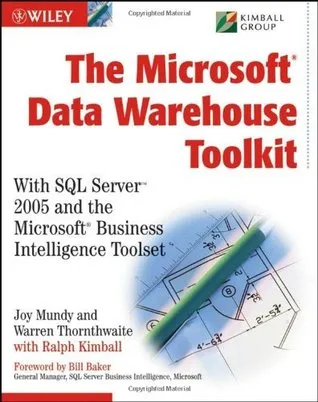The Microsoft Data Warehouse Toolkit: With SQL Server 2005 and the Microsoft Business Intelligence Toolset
By (author): "Warren Thornthwaite, Ralph Kimball, Joy Mundy"
Publish Date:
February 1st 2006
AsinThe Microsoft Data Warehouse Toolkit: With SQL Server 2005 and the Microsoft Business Intelligence Toolset
This groundbreaking book is the first in the Kimball Toolkit series to be product-specific. Microsoft’s BI toolset has undergone significant changes in the SQL Server 2005 development cycle. SQL Server 2005 is the first viable, full-functioned data warehouse and business intelligence platform to be offered at a price that will make data warehousing and business intelligence available to a broad set of organizations. This book is meant to offer practical techniques to guide those organizations through the myriad of challenges to true success as measured by contribution to business value.Building a data warehousing and business intelligence system is a complex business and engineering effort. While there are significant technical challenges to overcome in successfully deploying a data warehouse, the authors find that the most common reason for data warehouse project failure is insufficient focus on the business users and business problems. In an effort to help people gain success, this book takes the proven Business Dimensional Lifecycle approach first described in best selling The Data Warehouse Lifecycle Toolkit and applies it to the Microsoft SQL Server 2005 tool set.Beginning with a thorough description of how to gather business requirements, the book then works through the details of creating the target dimensional model, setting up the data warehouse infrastructure, creating the relational atomic database, creating the analysis services databases, designing and building the standard report set, implementing security, dealing with metadata, managing ongoing maintenance and growing the DW/BI system. All of these steps tie back to the business requirements. Each chapter describes the practical steps in the context of the SQL Server 2005 platform.
